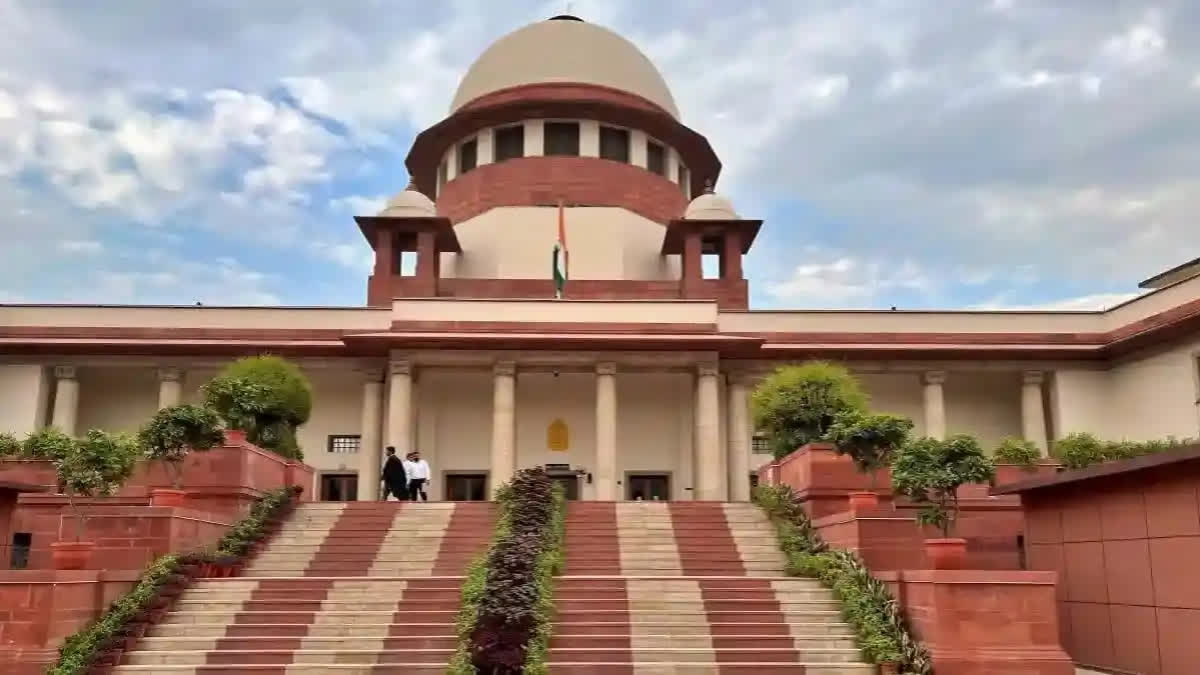New Delhi: The Supreme Court on Wednesday said that telecom companies need not deduct tax for selling discounted pre-paid SIM cards/recharge vouchers to distributors and set aside Delhi and Calcutta high courts' orders saying that Section 194H of the Income Tax is not applicable to them in this case.
A bench comprising justices Sanjiv Khanna and S V N Bhatti said: “we hold that the assessees would not be under a legal obligation to deduct tax at source on the income/profit component in the payments received by the distributors/franchisees from the third parties/customers, or while selling/transferring the pre-paid coupons or starter-kits to the distributors. Section 194-H of the Act is not applicable to the facts and circumstances of this case”.
The bench said the appeals filed by the assessee – cellular mobile service providers -- Bharti Airtel, Vodafone Idea, and others -- challenging the judgments of the high courts of Delhi and Calcutta are allowed and these judgments are set aside. The apex court’s verdict came on a batch of 40 appeals led by Bharti Airtel on applicability of TDS on discounts allowed to the pre-paid distributors on sale of SIM/ recharge vouchers.
The apex court said the argument of the Revenue that assesses should periodically ask for this information/data and thereupon deduct tax at source should be rejected as far-fetched, imposing unfair obligation and inconveniencing the assesses, beyond the statutory mandate. “Further, it will be willy-nilly impossible to deduct, as well as make payment of the tax deducted, within the timelines prescribed by law, as these begin when the amount is credited in the account of the payee by the payer or when payment is received by the payee, whichever is earlier. The payee receives payment when the third party makes the payment. This payment is not the payment received or payable by the assessee as the principal”, said the bench.
“The distributor/franchisee is not the trustee who is to account for this payment to the assessee as the principal. The payment received is the gross income or profit earned by the distributor/franchisee. It is the income earned by distributor/ franchisee as a result of its efforts and work, and not a remuneration paid by the assessee as a cellular mobile telephone service provider”, said the apex court in the 44-page judgment.
The apex court said an independent contractor is free from control on the part of his employer, and is only subject to the terms of his contract. But an agent is not completely free from control, and the relationship to the extent of tasks entrusted by the principal to the agent are fiduciary, it added.
“The distinction is that independent contractors work for themselves, even when they are employed for the purpose of creating contractual relations with the third persons. An independent contractor is not required to render accounts of the business, as it belongs to him and not his employer”, said the bench.
The apex court said the term ‘agent’ denotes a relationship that is very different from that existing between a master and his servant, or between a principal and principal, or between an employer and his independent contractor.
“Although servants and independent contractors are parties to relationships in which one person acts for another, and thereby possesses the capacity to involve them in liability, yet the nature of the relationship and the kind of acts in question are sufficiently different to justify the exclusion of servants and independent contractors from the law relating to agency”, said the bench.
It added that the term ‘agent’ should be restricted to one who has the power of affecting the legal position of his principal by the making of contracts, or the disposition of the principal’s property; viz. an independent contractor who may, incidentally, also affect the legal position of his principal in other ways.
The apex court decided on the issue whether a telecom service provider is liable to deduct TDS u/s 194H of the Income Tax Act since the relationship between the assessee and a distributor is allegedly that of principal to agent and that the payments paid by the assessee is commission as envisaged u/s 194H of the Act.
Read More



